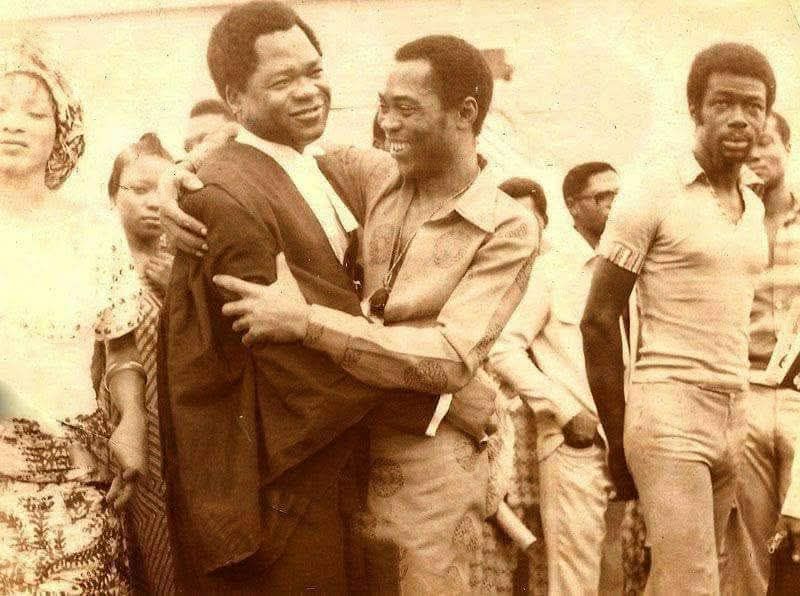
In February 1977, Nigeria’s military government under General Olusegun Obasanjo launched a violent assault on the Lagos home of Afrobeat legend Fela Anikulapo Kuti, an event that would come to symbolize the state’s crackdown on dissent and cultural activism.
Known as the Kalakuta Republic, Fela’s residence was not only his home but also a communal space for musicians, activists, and artists. It was razed to the ground by soldiers, with its residents brutalized and Fela’s mother, the matriarchal nationalist Funmilayo Ransome-Kuti, fatally injured during the invasion.
In the aftermath of the attack, the Kuti family turned to one of Nigeria’s most prominent human rights lawyers, Tunji Braithwaite to challenge the regime’s repression. Braithwaite, acting on instructions from Professor Olikoye Ransome-Kuti, led a formidable legal team to secure the release of both Fela and his brother, Dr. Beko Ransome-Kuti, who had been arrested and detained without formal charges.

Joined by other courageous legal minds including Alao Aka-Bashorun, Dr. Olu Onagoruwa, Oba Ayodele Kale, Tunde Sanu, and Femi Delumo, Braithwaite launched a high-stakes legal offensive against the military junta. The case advanced all the way to the Supreme Court and became a watershed moment in Nigeria’s legal history reinforcing the primacy of fundamental human rights even under military rule.
“The raid on Kalakuta Republic was not only an attack on Fela but on the constitutional freedoms of all Nigerians,” Braithwaite would later write in his memoirs. “We could not sit back and allow the state to normalize such illegality.”
The legal team’s strategy hinged on exposing the illegality of the soldiers’ actions no warrant, no trial, just brute force. They filed multiple suits demanding damages and redress, bringing international attention to Nigeria’s deteriorating human rights record. Though the courts, under pressure from the military, were slow to deliver justice, the case galvanized civil society and the legal community.
The Kalakuta trial served as a turning point for public discourse in Nigeria. It spotlighted the regime’s intolerance of dissent and the importance of judicial activism in confronting authoritarianism. It also reinforced Fela’s stature not only as a musical icon but as a political symbol of resistance.
Tunji Braithwaite, already known for founding the Nigeria Advance Party (NAP) and challenging the status quo, earned renewed respect for his fearless advocacy. His legal defense of the Kutis was not just about winning a case, it was about standing up for civil liberties in an era of intimidation.
The scars of that era run deep, but so does the legacy of resistance.
Today, nearly five decades later, the alliance between Fela Anikulapo Kuti and Tunji Braithwaite in 1977 stands as a powerful reminder of the role of the law and of music in resisting tyranny.
● Image Credit: Tunji Braithwaite (Memoirs)
Source: Nigeria Insiders Archives











